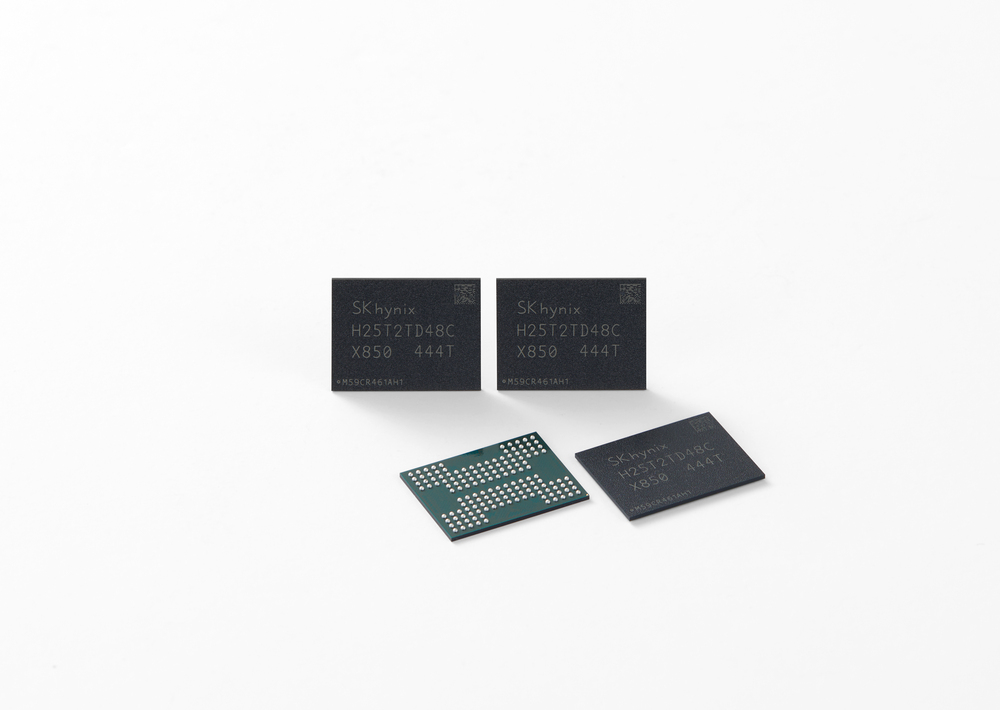
SK hynix has announced the mass production of the world’s first 321-layer NAND flash. According to the press release, the company will supply customers with its 321-high NAND flash featuring 1TB capacity starting in 1H 2025.
SK hynix’s 321-layer high NAND flash is built on a technology the company dubs the “3 plugs” process. This technology is purportedly known for its excellent production efficiency, and “…electrically connects three plugs through an optimized follow-up process after three times of plug processes are finished.” “For the process, SK hynix developed a low-stress material while introducing the technology that automatically corrects alignments among the plugs.”
SK hynix also uses the same development platform for its 321-layer NAND as its previous generation 238-layer flash, yielding a purported 59% improvement in 321-layer production. The move to 321 layers has purported improved data transfer speeds by 12% and read performance by 13% compared to the previous generation. Power efficiency has also been increased by more than 10%.
| Row 0 – Cell 0 | SK hynix | Samsung | Micron | YMTC | Kioxia |
| Current Layer Count | 321-layers | 280-layers | 232-layers | 232-layers | 218-layers |
321-layer NAND flash is currently the highest-layer flash in the industry. Samsung is the closest so far, with its 280-layer NAND flash, but it is actively working on 300-layer and even 400-layer flash to compete with SK hynix. Micron, YMTC, and Kioxia are the furthest behind, with 232-layer and 218-layer architectures at the time of writing.
Samsung’s next-generation 300-layer NAND flash will purportedly be produced differently from SK hynix. It will use a “double-stack” technique, which involves placing one 3D NAND stack on a 300 mm wafer and building another stack of flash on top of the first one. SK hynix’s solution is purportedly more efficient and involves using three layers.
Read full post on Tom’s Hardware
Discover more from Technical Master - Gadgets Reviews, Guides and Gaming News
Subscribe to get the latest posts sent to your email.








